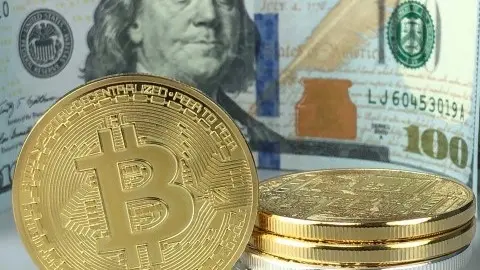Germany: Breather but no relief
The increase in today's Ifo index is too little to take away fears of a further downward slide of the economy
Anyone looking for a bit of shiver these days only needs to take a look at German macro data - a series of horrific macro news. This morning’s Ifo index brought some relief but as in tunnels of horror, there is no guarantee that the next monster isn't round the corner. Germany’s most prominent leading indicator, the Ifo index, increased for the first time in a year, coming in at 94.6 in September, from 94.3 in August. While the current assessment component unexpectedly increased to 98.5, from 97.5 in August, the expectations component continued its recent fall.
Closer to a technical recession
A breather but no relief. The small increase in the Ifo index does not take away the fact that the German industry continues to suffer from structural changes and the ongoing trade conflict.
In fact, the industry has seen a complete reversal within a year. Cast your minds back to last summer when the biggest problem for the German economy was supply-side constraints? But the lack of demand has now become one of the most pressing issues.
According to the European Commission’s sentiment indicators, the issue of demand as a limiting factor to production is at its highest level since 2012. Consequently, our previous hopes for investment being the growth wild card for this year have faded too. All supply-side constraints in the industry are disappearing quickly. Unfortunately, this is not, as hoped, on the back of new investments but simply driven by weaker demand. Equipment as a limiting factor to production has dropped to its lowest level since the end of 2017. The lack of skilled workers has dropped to its lowest level since 2Q17. Capacity utilisation has fallen to its lowest levels since 1Q16. At least in the short run, there is very little hope for a rebound. High inventories and smaller order books do not bode well for industrial activity in the coming months.
The likelihood of another contraction of the German economy in the third quarter and hence a technical recession increases almost by the day. While a “light” technical recession is not the end of the world for an economy which has been growing for more than ten years and has an unemployment rate at all-time lows, it is the lack of any signals of an imminent rebound which is more concerning. Calls for government action will continue.
Climate change investment improves longer-term prospects but not short term
The German government’s plans to tackle climate change drew lots of attention. The introduction of a carbon price on transport and buildings, bigger incentives for buying electric cars, investments in the railway system, higher duties on domestic flights, as well as other measures, will add some 54bn euro into the economy between 2020 and 2023.
However, at the same time, the government has kept the option open to levy new taxes, which would reduce the net impact. As it normally takes some time before investment programs are actually implemented, this climate package will do little for a short-term boost but will rather improve the economy’s longer-term prospects. Does this mean that any additional fiscal stimulus can be excluded? No. There still is enough fiscal space, even without breaching the constitutional debt brake, but it looks as if the government will wait with any short-term stimulus until there are credible signs that the labour market is turning.
As much as we would like to see an end to the downward trend in the German economy, today’s Ifo index is not the indicator signalling it. It’s a short breather, which keeps both the hopes for a bottoming out as well as the fears of another downward slide alive.
This publication has been prepared by ING solely for information purposes irrespective of a particular user's means, financial situation or investment objectives. The information does not constitute investment recommendation, and nor is it investment, legal or tax advice or an offer or solicitation to purchase or sell any financial instrument. Read more
Download
Download snap
24 September 2019
What’s happening in Australia and around the world? This bundle contains 6 Articles